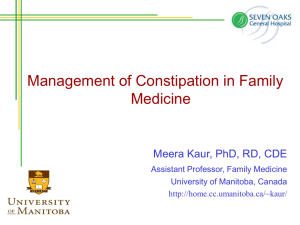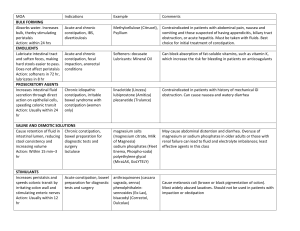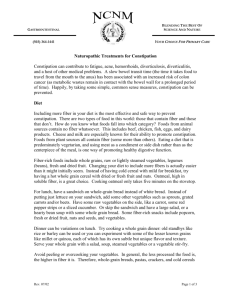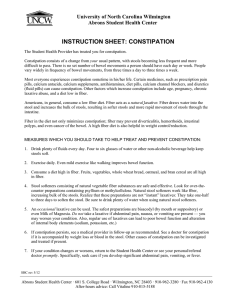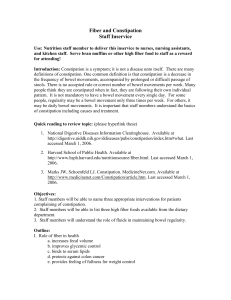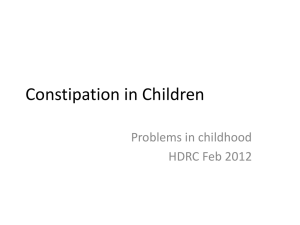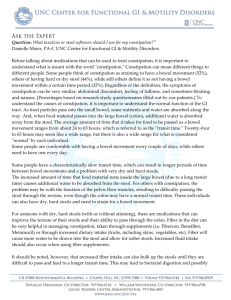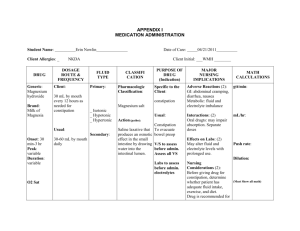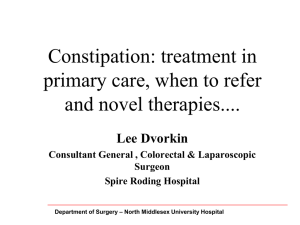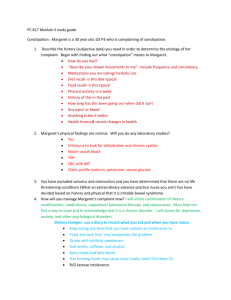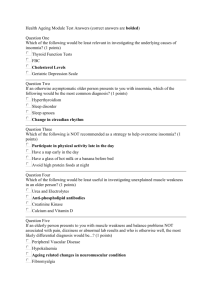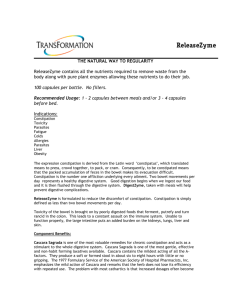Are You Holding On? Are you holding on when you should be letting
advertisement
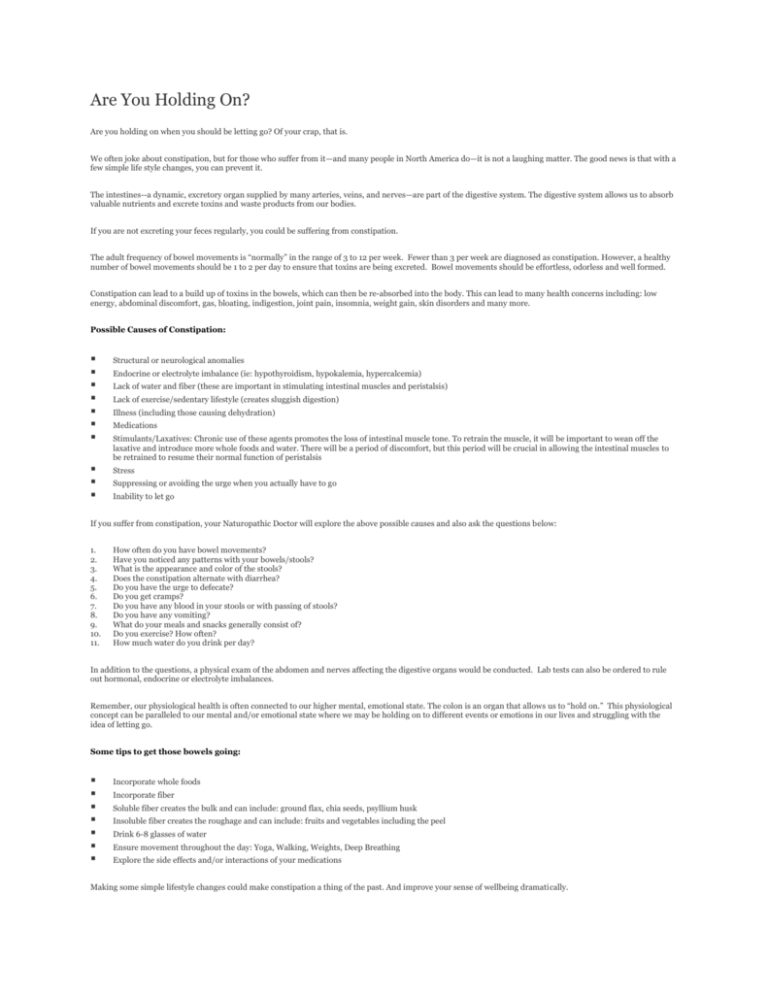
Are You Holding On? Are you holding on when you should be letting go? Of your crap, that is. We often joke about constipation, but for those who suffer from it—and many people in North America do—it is not a laughing matter. The good news is that with a few simple life style changes, you can prevent it. The intestines--a dynamic, excretory organ supplied by many arteries, veins, and nerves—are part of the digestive system. The digestive system allows us to absorb valuable nutrients and excrete toxins and waste products from our bodies. If you are not excreting your feces regularly, you could be suffering from constipation. The adult frequency of bowel movements is “normally” in the range of 3 to 12 per week. Fewer than 3 per week are diagnosed as constipation. However, a healthy number of bowel movements should be 1 to 2 per day to ensure that toxins are being excreted. Bowel movements should be effortless, odorless and well formed. Constipation can lead to a build up of toxins in the bowels, which can then be re-absorbed into the body. This can lead to many health concerns including: low energy, abdominal discomfort, gas, bloating, indigestion, joint pain, insomnia, weight gain, skin disorders and many more. Possible Causes of Constipation: Structural or neurological anomalies Stress Endocrine or electrolyte imbalance (ie: hypothyroidism, hypokalemia, hypercalcemia) Lack of water and fiber (these are important in stimulating intestinal muscles and peristalsis) Lack of exercise/sedentary lifestyle (creates sluggish digestion) Illness (including those causing dehydration) Medications Stimulants/Laxatives: Chronic use of these agents promotes the loss of intestinal muscle tone. To retrain the muscle, it will be important to wean off the laxative and introduce more whole foods and water. There will be a period of discomfort, but this period will be crucial in allowing the intestinal muscles to be retrained to resume their normal function of peristalsis Suppressing or avoiding the urge when you actually have to go Inability to let go If you suffer from constipation, your Naturopathic Doctor will explore the above possible causes and also ask the questions below: 1. 2. 3. 4. 5. 6. 7. 8. 9. 10. 11. How often do you have bowel movements? Have you noticed any patterns with your bowels/stools? What is the appearance and color of the stools? Does the constipation alternate with diarrhea? Do you have the urge to defecate? Do you get cramps? Do you have any blood in your stools or with passing of stools? Do you have any vomiting? What do your meals and snacks generally consist of? Do you exercise? How often? How much water do you drink per day? In addition to the questions, a physical exam of the abdomen and nerves affecting the digestive organs would be conducted. Lab tests can also be ordered to rule out hormonal, endocrine or electrolyte imbalances. Remember, our physiological health is often connected to our higher mental, emotional state. The colon is an organ that allows us to “hold on.” This physiological concept can be paralleled to our mental and/or emotional state where we may be holding on to different events or emotions in our lives and struggling with the idea of letting go. Some tips to get those bowels going: Incorporate whole foods Incorporate fiber Soluble fiber creates the bulk and can include: ground flax, chia seeds, psyllium husk Insoluble fiber creates the roughage and can include: fruits and vegetables including the peel Drink 6-8 glasses of water Ensure movement throughout the day: Yoga, Walking, Weights, Deep Breathing Explore the side effects and/or interactions of your medications Making some simple lifestyle changes could make constipation a thing of the past. And improve your sense of wellbeing dramatically. By Nooreen Sumar, BSc. ND. Doctor of Naturopathic Medicine Nooreen Sumar, a licensed Naturopathic Doctor, recently moved to Edmonton from her home town of Calgary to pursue her passion in the practice of Naturopathic Medicine. If you have any questions or want to book an appointment with Nooreen, please call Healing Connections on 780 488 9779 or email: drsumar.nd@gmail.com. References: Dains, J. E., Baumann, L. C. & Scheibel, P. (2007). 3 Ed. Advanced Health Assessment and Clinical Diagnosis in Primary Care. St Louis, Missouri: Mosby, Inc. rd Awareness Corporation. (1998-2009). Are your health problems linked to a toxic colon?
